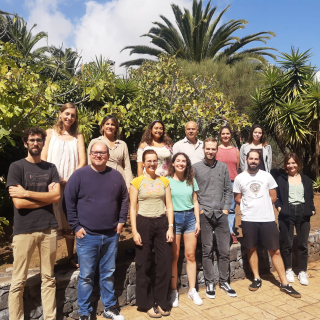Bibcode
Weidner, C.; Kroupa, P.; Pflamm-Altenburg, J.
Referencia bibliográfica
Monthly Notices of the Royal Astronomical Society, Volume 441, Issue 4, p.3348-3358
Fecha de publicación:
7
2014
Número de citas
21
Número de citas referidas
19
Descripción
It has been claimed in the recent literature that a non-trivial relation
between the mass of the most-massive star, mmax, in a star
cluster and its embedded star cluster mass (the mmax -
Mecl relation) is falsified by observations of the
most-massive stars and the Hα luminosity of young star clusters in
the starburst dwarf galaxy NGC 4214. Here, it is shown by comparing the
NGC 4214 results with observations from the Milky Way that NGC 4214
agrees very well with the predictions of the mmax -
Mecl relation and with the integrated galactic stellar
initial mass function theory. The difference in conclusions is based on
a high degree of degeneracy between expectations from random sampling
and those from the mmax - Mecl relation, but are
also due to interpreting mmax as a truncation mass in a
randomly sampled initial mass function. Additional analysis of galaxies
with lower SFRs than those currently presented in the literature will be
required to break this degeneracy.
Proyectos relacionados

Huellas de la Formación de las Galaxias: Poblaciones estelares, Dinámica y Morfología
Bienvenida a la página web del g rupo de investigación Traces of Galaxy Formation. Somos un grupo de investigación amplio, diverso y muy activo cuyo objetivo principal es entender la formación de galaxias en el Universo de una manera lo más completa posible. Con el estudio detellado de las poblaciones estelares como bandera, estamos constantemente
Ignacio
Martín Navarro